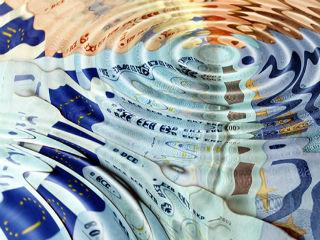by
Dr. Antonis Zairis* and George Zairis**
The Greek "production problem", which results in high unemployment, could not be symbolized better than the fact that throughout the 40 years, from 1970 to 2009, the productive sector of the country was increasing at a rate less than 1% per year, a percentage lower than even the birth rate. At the same time, however, the inflation of the public sector was terrifying. From 264,000 people in 1970 to 824,000 in 2009, i.e. an increase of 4% per annum, which means that it could reach 1.2 million people, the wider public sector included.
We could therefore say that the existing production model has the following direct consequences:
1. It imposes heavy and unjust tax on individuals’ and business’ income, a taxation which simply and temporarily "covers up" the deficits created by the hundreds of thousands of redundant civil servants.
2. It doubles unemployment rates and businesses receive a huge blow from the taxes which force companies to fire people or decrease the salaries.
3. It extends the recession in the Greek economy, because the public sector ineffectively and wastefully manages the taxpayers' money.
Is therefore the public sector’s minimization a solution or the results will be the exact opposite?
It is true that cutting the public sector will have beneficial effects for the private sector, since a part of this very considerable savings will go for the public debt’s shrinkage, another part will return to the private sector and the last part will cover the drastic reduction of taxes, which will be a great relief for a considerable percentage of the Greek people.
Moreover, the growth which will come from the transfer of resources from the state to the private sector, in combination with the implementations of structural reforms agreed between Athens and its lenders, such as the reduction of red tape regarding entrepreneurship, the removal of inelastic arrangements in the labor market, the opening of closed professions etc., will leverage Greek entrepreneurship and perhaps may intercept the phenomenon according to which Greeks continue to invest in cafés, traditional fast-food restaurants and beauty salons rather than in innovative activities mainly export-oriented.
In addition, it will encourage domestic and foreign investment, and most importantly, it will change the economic prospects of households and enterprises, so that the economy will soon return to growth.
But the Greek weak economy seems to be unable to use the internal devaluation to increase the exports and also, toward the substitution of imports from domestic production. The inherent weaknesses of the Greek entrepreneurship, coupled with disinvestment in the industry as a consequence of the financial crisis, virtually removed the potential for extroversion to be a competitive advantage of the Greek economy and the recession to be turned into a springboard for the famous reconstruction of the country's productive model. So, if we exclude oil, the value of Greek exports has failed, unfortunately, to even break the barrier of 17 billion Euros. At the same time, the non-significant substitution of imports of domestically produced products, makes Greek economy vulnerable not only to internal factors such as the current lack of liquidity, but also to external ones.
Unfortunately the serious structural problems still exist and are linked to the low structural growth, heavily indebted private sector and also to an unsustainable pension system. So, in combination with all the mentioned above, how can or in how many years is it possible, a country like Greece, to be back on track and be based on a production model which will offer a real and not virtual development?
In conclusion, we could say that the production model did not change during the years of crisis, and of course nothing will change since the country lacks of destination, direction, guidance and targeting. There is no strategic plan in the economy, meaning no orientation and also what products should be prioritized in order to have a competitive advantage and to be internationally tradable, capable of standing up to international markets, e.g. the metallurgical products, chemicals, processed food, the start uppers etc. The state, voluntarily, over the years of the political changeover did the exact opposite, i.e. aimed at 'tired' products that were directly related to the public sector, in a desperate bid of the party system to serve specific customer groups but not the society.
So did our politicians ever defend the collective interests instead of individual -self-seeking lobbying interests?
The answer is no, simply because by this means the political system ensured the party reproduction. It’s worth highlighting that markets in Greece were and still are underdeveloped and also directly dependent on state politics, supplies or deregulation of public sector. That’s why it must emerge a healthy, young and smart entrepreneurial sentiment. On the other hand, it is common knowledge that regeneration comes through a creative destruction.
Could it be now the time for Greece to "look" and chase this development path where through a sustainable production model will be the impetus for competitiveness and development?
* VP SELPE
* VP SELPE
**
Economist




 By: N. Peter Kramer
By: N. Peter Kramer
